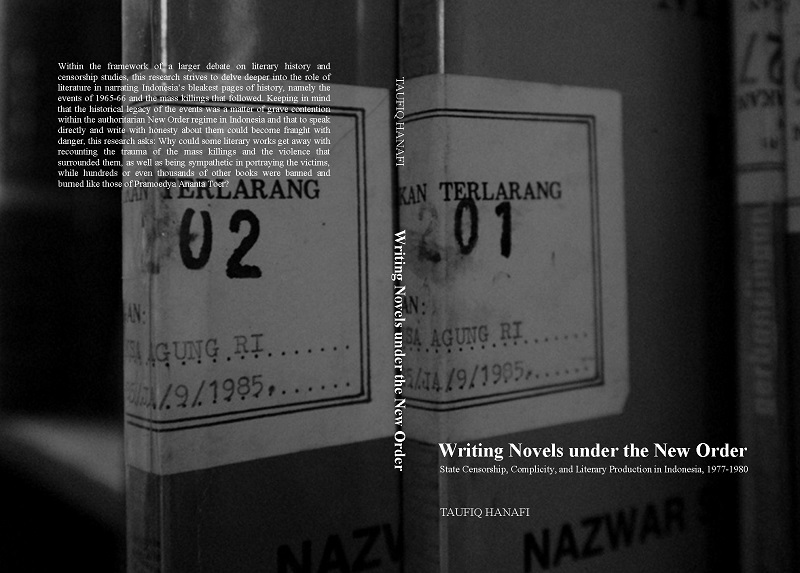KITLV/Royal Netherlands Institute of Southeast Asian and Caribbean Studies

- This event has passed.
PhD defence | Writing novels under the New Order | Taufiq Hanafi
31/03/2022 @ 13:45 - 14:30

On 31 March Taufiq Hanafi will defend his thesis Writing novels under the New Order; State censorship, complicity, and literary production in Indonesia, 1977-1986, in the Academiegebouw, Leiden University.
Abstract
Within the framework of a larger debate on literary history and censorship studies, this research delves deeper into the role of literature in narrating Indonesia’s bleakest pages of history, namely the events of 1965-1966 and the mass killings that followed. The historical legacy of the events was a matter of grave contention within Indonesia and to speak directly and write with honesty about them could become fraught with danger. Therefore, throughout most of the 1970s, creative literature in Indonesia was almost totally silent on the background and meaning of the killings of 1965-66, the very specific topic that did not collocate with the values of the authoritarian New Order regime. The aftermath in the lives of individuals who witnessed this tragedy was also skipped over in Indonesian literature. In addition, the traumatic nature of the experience seemed to have been expunged from the memories of witnesses and inhibited a wider group of people from talking. However, against all odds, a few literary authors spoke up and openly addressed this theme in their novels. They were even sympathetic in portraying the victims even though the regime was at the height of its power and exerting maximum social and political control through rampant censorship.
In this regard, this dissertation addresses the broader question about what this case of literary production tells us about the nature of censorship under the New Order.
More
More information can be found at the website of Leiden University (in Dutch).
Livestream
You can follow PhD defences at Leiden University via videostream here.
Details
- Date:
- 31/03/2022
- Time:
-
13:45 - 14:30
- Event Category:
- KITLV Events
- Website:
- https://www.universiteitleiden.nl/agenda/2022/03/writing-novels-under-the-new-order
Organizer
- Leiden University
Venue
- Academiegebouw, Leiden University & via livestream



